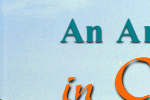 | 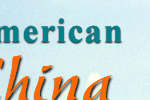 | 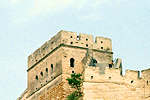 | 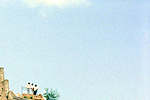 |
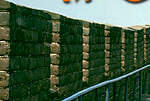 | 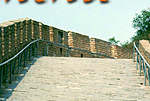 | 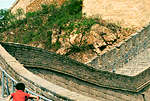 | 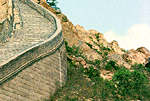 |
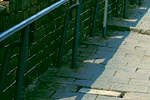 | 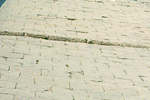 | 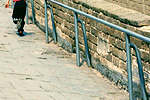 | 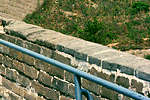 |
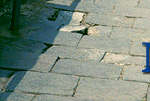 | 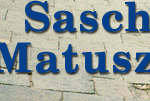 | 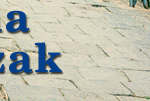 | 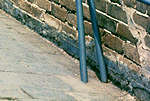 |
|
November 22, 2002 The Incoming Hu Era |
|
The culminating change in China’s 20 year transition from a communist country paralyzed by revolution and poverty to a capitalizing golden child of businessmen around the world is passing before us this month. Jiang’s era is ending and a new group of leaders – controlled by the Elders most likely, but nevertheless, new faces – is taking over. The power struggles at the top between Zhu Rongji’s people and Li Peng’s people, Jiang’s people and Hu Jintao’s (he presumably has his own circle of friends and contacts) are the focus of international media. These struggles, like the elections, The National Congress and pretty much any other politicking going on in Beijing have very little impact on the life of the common man. Instead, the crackdown that accompanies a transition in politics and a CCP National Congress is all the commoners really feel. The crackdown and the (semi) mandatory "Study the Theory" sessions of the local danwei, the obligatory red and yellow banners proclaiming this or that majestic aspect of the Party, the Theory or The Man. The media barrage is fun as well: hours and hours of Red Flags, old black and white movies, solemn and/or enthusiastic support of anything remotely Communist, interviews with old revolutionaries and of course the song and dance. Most of this has little effect. You get used to it after a while. What is annoying for Chinese is the sudden need to present identification upon entering a netbar – to confirm that you’re 18 years of age. Recently, taxi drivers are much less inclined to pull U-Turns, extreme lane changes or otherwise spectacular feats of driving, traffic wardens (almost strictly female here in the west) get real serious about jaywalkers and the brothels close down early. And maybe the gangsters and corrupt politicians take a break from scheming, but I doubt it. In fact, the crackdown can be seen as much as an effort to promote oneself than an actual attempt to enforce laws. This transition that China is going through will flow right through this "election" and on into the future, but Jiang stepping down and offically putting the stamp on privateering gives local fat cats an even greener light to pursue political and financial gain. When the boys at the top start tussling over the football, the boys all the way down the line, to the lowliest traffic cop, see an opportunity (or need) to produce impressive results of some kind. What will Hu do? It is not yet clear if Hu will initiate another Strike Hard campaing to inaugurate his administration. It would seem to go against the inclusive theme of the "16th Big," but Chinese leaders like to compare themselves with Russia, and explain away annual crackdowns and random acts of suppression as needful acts in a country like China, busting at the seams with people and going through growing pains. A strong hand in the beginning may also send a signal to the New Capitalcommunists that Beijing intends to keep its hands on the reins, while also showing internationally that he has power and the will to command it. The backlash of a Strike Hard campaign internationally would possibly be minimal to due the already entrenched powers of businessmen in the west who intend to keep China at the top of their lists of places to be. Domestically, it could be a magnificent coup if it were directed as much at the corruption of the Party as at the wandering peasants looking for a few yuan in the cities. Last year’s Strike Hard campaign was aimed at the netbars and the migrant workers with a couple of high-profile corruption-related executions thrown in. A true dredging of the Party may be just the thing to ease the minds of old revolutionaries, reassure the populace and strike fear in the hearts of fat cats all over the mainland. A Step Behind Reality But just as Jiang’s Theory was naught but an admission of what already is, a move by Beijing to rein in the country may be a bit like chasing the tail of a galloping horse. In Jiangxi, I hear all net-bar users must register their names and addresses and then are issued a card. In Kunming, surfing has become nigh impossible, according to the rumors, with yellow screens popping up for every third site. Many sites are censored and chat rooms have monitors, but controlling the net is quite difficult, no matter how much repression practice you have under your belt. But the reality Jiang claims to have created with the Three Representatives includes people with more than enough space and money to buy a personal computer and thousands of little shops and huge bazaars one can wander through in search of the perfect components. The Development of the West projects receive a steady flow of big money from the center, all supposedly in good faith. But not a jiao (a Chinese penny) reaches the broke peasants of Sichuan, Qinghai or Guizhou. It all gets lost in the maze of pockets that stretches across the mainland. Last year’s Strike Hard campaign may have been in good faith, one can never really tell. But only those fat cats ripe for the picking, disliked in their own districts (or by someone more powerful than they) and arrogant enough not to hide their money trail adequately were shipped off to the block. Internationally, China has made some wise moves while other countries "drew bad cards," but over-cautiousness during the Afghan war has led to China losing out to the US in Central Asia. The Shanghai Cooperation Organization has virtually disappeared after 9/11. Investments in Iraq and plans for a pipeline partnership somewhere down the line are about to be blown into dust and Xinjiang oil is no closer to the surface than it was 10,000 years ago. Expensive oil is likely to be the worst short-term result of a loss of power in the West. But who knows what the future may bring with US and Chinese soldiers chasing terrorists across borders? Perhaps cooperation, perhaps tragic misunderstandings. Fortunately for Hu, opportunistic political rhetoric always lags behind the times and doesn’t necessarily entail the government itself being out of touch. –Sascha
Matuszak
Please Support Antiwar.comSend contributions to Antiwar.com or
Contribute Via our Secure Server Your contributions are now tax-deductible
|
Sascha Matuszak
is a teacher living and working in China. His articles have appeared
in the South China Morning Post, the Minnesota Daily,
and elsewhere. His exclusive Antiwar.com column (usually) appears
Fridays. Archived columns Jiang's
Theory Is a Smokescreen 'We
Make You Play Bad Card' The
Future of East-West Rapprochement Tiananmen's
Legacy: The Forgotten Rebellion Deciphering
the Chinese Smile Why
China Can Disregard US Anger Arming
the World: What the US Fears 1.3
Billion Problems For China China's
New Post-9/11 Status
Sweep 'Em Off the Streets
Chinese Embrace Progress China's
Afghan Agenda New
War May Reveal New Superpower, Part II New
War May Reveal New Superpower A
Chance for a New Friendship? Cheating
as a Way of Life China's
Internet Generation Free
Markets or Supermarkets Sailing
Towards World Significance China's
Youth Revolution |
